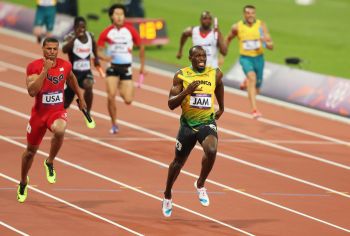Athletics will get a lower share of Olympic revenues in the future after the International Olympic Committee on Wednesday recalculated the federations' revenues according to their contribution to the Games.
The 26 sports federations at the London 2012 Olympics divided up $519 million based on their IOC ranking, with athletics, the flagship sport of the Games, expected to receive around $47 million as the only one in the top earning Group A.
However, the new plan for the Rio de Janeiro 2016 revenue distribution has five categories of sports instead of four, with athletics no longer enjoying all of the Group A pot.
 "Athletics will get less money than in the past. Gymnastics and swimming have moved up to Group A," Andrew Ryan, Executive Director of the Association of Summer Olympic international Federations (ASOIF) told reporters.
"Athletics will get less money than in the past. Gymnastics and swimming have moved up to Group A," Andrew Ryan, Executive Director of the Association of Summer Olympic international Federations (ASOIF) told reporters.
Under the previous breakdown, Group B sports received about $22 million each, Group C $16 million and sports in Group D about $14 million.
Like athletics, it was bad news for equestrian, handball, hockey and modern pentathlon who dropped a level and will now be getting less.
But table tennis, badminton, boxing, judo, archery, shooting and weightlifting are expected to benefit from the recalculation.
Ryan said it was not clear how much money would be made available to the federations according to their new ranking after Rio but said he did not expect a sharp jump in the overall payment to federations given most broadcast contracts - the biggest source of revenue for the IOC - had already been signed.
Federations saw a 15 percent rise in revenues from $256.1 million after the Athens 2004 Olympics to $296 million following the Beijing 2008 Games.
Far bigger broadcasting contracts mean a 75 percent rise after London.
For international athletics federation (IAAF) chief Lamine Diack, the reduced share did not change his sport's status within the Games.
"We are the only universal sport in the Games," Diack told reporters after the new groups were announced. "I have no problem with that. Gymnastics and swimming are nice sports. But why was there an Olympic stadium in London?"
"For opening and closing ceremony and athletics. We filled it for nine straight days," said Diack. "The sport that will make the Games special is athletics. We will see what will happen with the revenues."
Photograph: Bryn Lennon/Getty Images













 © 2025
© 2025